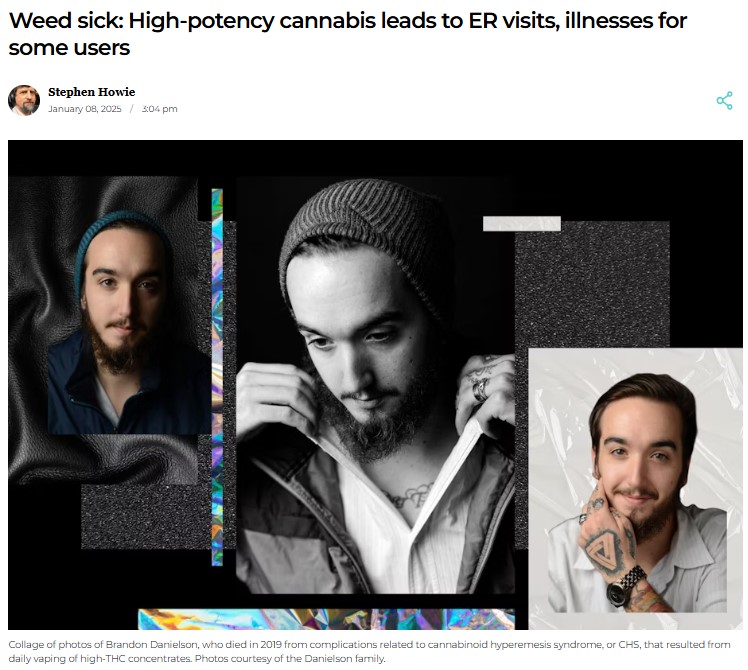High Potency Cannabis Leads to ER Visits, Illnesses for Some Users (KUOW with ADAI’s Beatriz Carlini)
01/10/2025
This new article from KUOW/NPR describes some of the latest data and research related to serious health impacts from use of high-THC cannabis products and talks to ADAI’s Beatriz Carlini, PhD, MPH, director of our Cannabis Education & Research Program (CERP).
The article describes increasing illnesses, ER visits, and deaths related to use of high-THC products like extracts for vaping, dabbing, etc., which many people don’t realize have little resemblance to the actual cannabis plant. Dr. Carlini often uses the analogy of strawberries compared to strawberry Pop-Tarts. “The plant is so processed, it is enhanced by so many manufacturing processes, extractions, additions, concentrations . . . You suck the THC out of the plant and make a gooey material. It becomes detached from the plant.”
Dr. Carlini and her team have recently focused their work on the effects of high-THC products on psychotic disorders and last September hosted the first symposium on the topic in the nation, which featured experts from around the globe: Cannabis, Schizophrenia, & Other Psychotic Disorders: Moving Away from Reefer Madness Toward Science (recordings and slides available).
Meanwhile, attempts to pass regulations that would help protect youth in particular from these more dangerous products have been stymied repeatedly by the cannabis industry, using tactics from the Big Tobacco playbook, as documented in Dr. Carlini’s paper, “Threaten, distract, and discredit: Cannabis industry rhetoric to defeat regulation of high-THC cannabis products in Washington State.” (Need help getting a copy of this paper? Email Meg Brunner, MLIS: meganw@uw.edu.)





